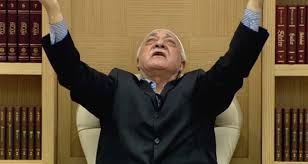Fethullah Gülen, the controversial cleric and leader of the Gülen movement, has reportedly passed away in the United States. His death has sparked a wave of speculation regarding potential power struggles and intra-organizational conflicts within his movement, which has long been a focal point of political tensions in Turkey.
A Legacy of Controversy
Gülen, who lived in self-imposed exile in Pennsylvania since 1999, was the subject of numerous allegations, including involvement in a failed coup attempt in Turkey in 2016. His movement, once an ally of the Turkish government, fell from grace and was subsequently branded a terrorist organization by Ankara. This transformation has left a complex legacy, characterized by a vast network of followers and significant political influence.
Internal Strife and Succession Concerns
In the wake of Gülen’s death, reports suggest that there may be considerable unrest within the ranks of his movement. Sources indicate that factions have emerged, vying for leadership and control over the vast resources and networks established during Gülen’s lifetime. This internal conflict raises questions about the future of the movement and its ability to maintain cohesion without its charismatic leader.
Implications for Turkish Politics
Gülen’s passing could have significant repercussions for Turkish politics, particularly as the government continues to pursue crackdowns on alleged members of his organization. The Turkish state has long viewed the Gülen movement as a major threat, and the absence of Gülen may embolden the government to intensify its efforts against remaining followers.
As the Gülen movement navigates this turbulent period, the potential for further fragmentation and infighting poses challenges to its survival and influence both domestically and internationally. The coming weeks will be crucial in determining the movement’s direction and its impact on the broader political landscape in Turkey.
Foreign Minister Hakan Fidan Confirms Death of Fethullah Gülen in the U.S.
Foreign Minister Hakan Fidan has confirmed reports that Fethullah Gülen, the leader of the Fethullahist Terrorist Organization (FETÖ), has died in the United States.
Following the announcement of Gülen’s death on social media accounts known to be affiliated with the organization, which stated he passed away on October 20 while receiving treatment in a hospital in the U.S., Minister Fidan indicated that intelligence sources have corroborated Gülen’s death.
Fidan stated, “Our intelligence sources also confirm the death of the leader of the FETÖ organization. The leader of this dark organization is dead. Our nation’s resolve in the fight against terrorism will continue. This news of death will never lead us to complacency or relaxation.”
Fidan continued, saying:
“This organization has been a rare focal point of threat in our nation’s history. It has deceived thousands of our youth in the name of sacred values, transforming them into a machine that betrays their homeland, nation, and sacred values. These individuals are now in the hands of foreign intelligence services, being used as weapons against their own country and people in great disgrace. Through this death, the spell that has held them must now be lifted, and I invite them to abandon this treacherous path filled with betrayal and to stop working against their states and nations. This path is not a good one. The end of this path will not be a good ending. Our nation and state will continue to fight against this terrorist organization, as with any terrorist organization. They should know to turn back while there’s still time.”
Claims of Factionalism Within the Organization
According to security sources, following the death of Fethullah Gülen, leader of the Fethullahist Terrorist Organization (FETÖ), divisions and power struggles within the organization have become evident. Disagreements have even arisen regarding where and how Gülen’s funeral will be conducted.
Sources indicate that there may be a rift between the factions based in the U.S. and Europe. Allegations suggest that there is a conflict over the management of the financial assets held by the organization between these two factions. Additionally, the question of who will succeed Gülen is also a topic of discussion.
Sources emphasize that efforts are ongoing to verify this information and that they are closely monitoring developments. They reported that the U.S. faction is led by Cevdet Türkyolu, and Mustafa Özcan is also said to be part of this faction.
It is claimed that Türkyolu controls a significant portion of the organization’s financial resources, leading to discomfort among some members within the organization regarding his influence.
Factional Struggles Between the U.S. and Europe
Security sources have suggested that individuals such as Ekrem Dumanlı, İsmet Aksoy, Adem Kalaç, Naci Tosun, and Muhammet Çetin support the U.S. faction.
According to evaluations from these sources, there is tension between Abdullah Aymaz, who is alleged to lead the European faction, and the U.S. faction.
Allegations claim that the European faction is supported by figures such as Mustafa Yeşil, Ali Ursavaş, Barbaros Kocakurt, Talip Büyük, Bilal Karaduman, and İsmail Cingöz.
Sources indicate that this faction has begun voicing claims of a potential split from the organization as the “European wing.”
Should a division occur, it is anticipated that operations in Africa could fall under the influence of the European faction, while operations in Asia might be affected by the U.S. faction.
